
This month Missouri voters rejected “right to work” at the ballot. Two organizers from the state join us to talk about the win and what the rest of the country can learn from their incredible success.
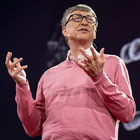
How did the “moral economy”—a concept that once encompassed a radical critique of capitalism—become the province of billionaires?

Please join us in welcoming Kate Aronoff to the Dissent masthead!
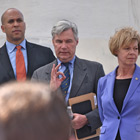
Going left on economics plays not only in the liberal cities but also in many of the suburbs and farms. It’s the key to the Democrats’ electoral success moving forward.

As many as half of the jobs we do could be considered pointless, estimates anthropologist David Graeber. How did so many of these jobs come to exist, and what does it mean for labor activists?

With last week’s referendum, the “Show-Me” state showed that the right’s assault on organized labor does not stand the test of democracy.

In a special panel discussion, Sarah speaks with three strike veterans about what it takes to walk off the job, build community support—and win.

How do socialist demands become liberal common sense? The history of the New Deal offers a useful lesson.

To win in Texas, the Democratic Party will need to build a progressive ecosystem that can engage key constituencies—particularly young voters—throughout the year.

“I first notice it a few weeks after the election. The swastika has been spray-painted onto the curb kitty-corner from my parents’ house…”
A short story.
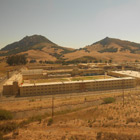
Can a prison novel set in the age of mass incarceration have a successful escape? Rachel Kushner’s answer is at once hopeless and transformative.
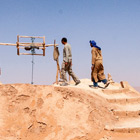
How a colonial dream ran Morocco dry.
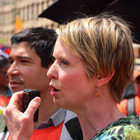
In a year of pivotal midterm elections, the rising left wing of the Democratic party is distinguished as much by how it organizes as the policies it advocates.

On Amazon Prime Day warehouse workers around the world took action against the company. We hear about some of the organizing going on in fulfillment centers from Germany to New Jersey.

A new documentary reveals how the right-wing attack on the national, grassroots anti-poverty group ACORN was a dress rehearsal for our current toxic political culture.




















